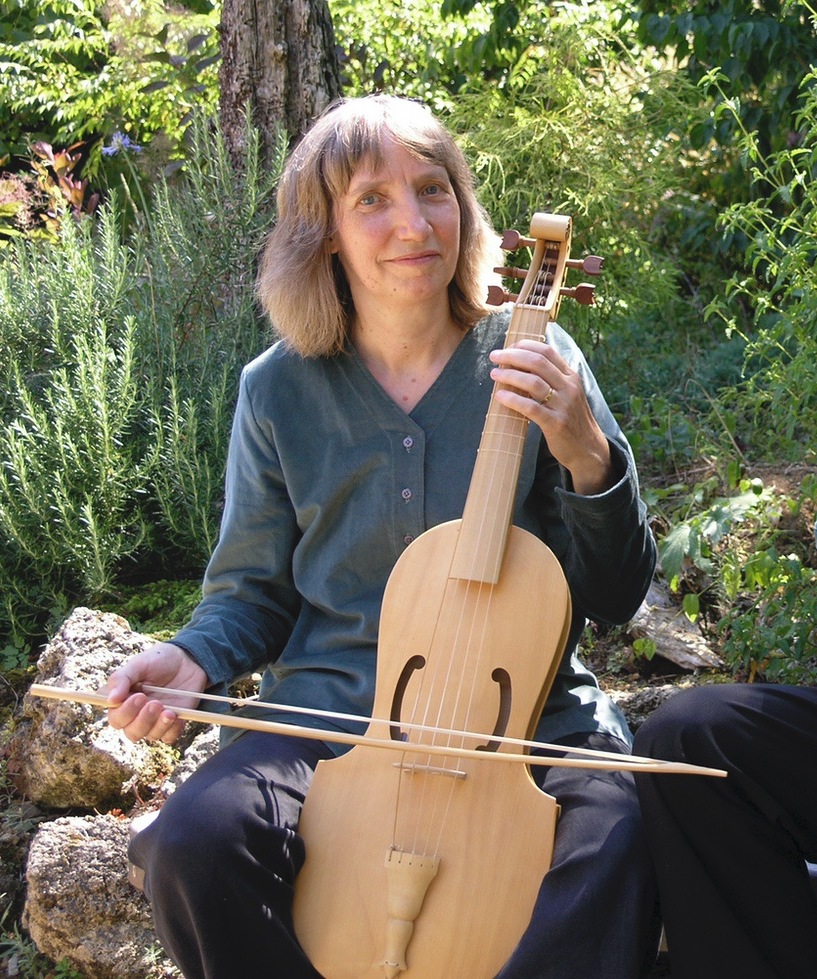
Alison Crum
One of the best-known British exponents of the viol, Alison is a teacher, performer and moving spirit behind several well-known early music groups, and has travelled all over the world giving recitals and lectures and teaching on summer schools and workshops.
After considering a career in meteorology, she studied music at Reading university as a French horn player. While there she started playing the viol, and later went on to study with Wieland Kuijken in Brussels and Jordi Savall in Basel. Since then she has made well over 100 recordings with some of Britain’s finest ensembles, including the Consort of Musicke, the Dowland Consort and Musica Antiqua of London. She features as a soloist on recordings of Marais, Bach and virtuoso Italian divisions. An increasing interest in earlier repertory for the viol led her to make a duo recording, A Spagna in the Works, with her husband Roy Marks. She is President of the Viola da Gamba Society of Great Britain, Professor of Viol at Trinity Laban in London, and a visiting teacher at several colleges and universities in both Europe and the USA. She directs many courses for viol players, including the International Viol Summer School, attracting players from all over the world. She is the author of two highly acclaimed books on playing the viol, as well as a series of graded music books, and has been called ‘the doyenne’ of British viol teachers.
Alison Crum's Website
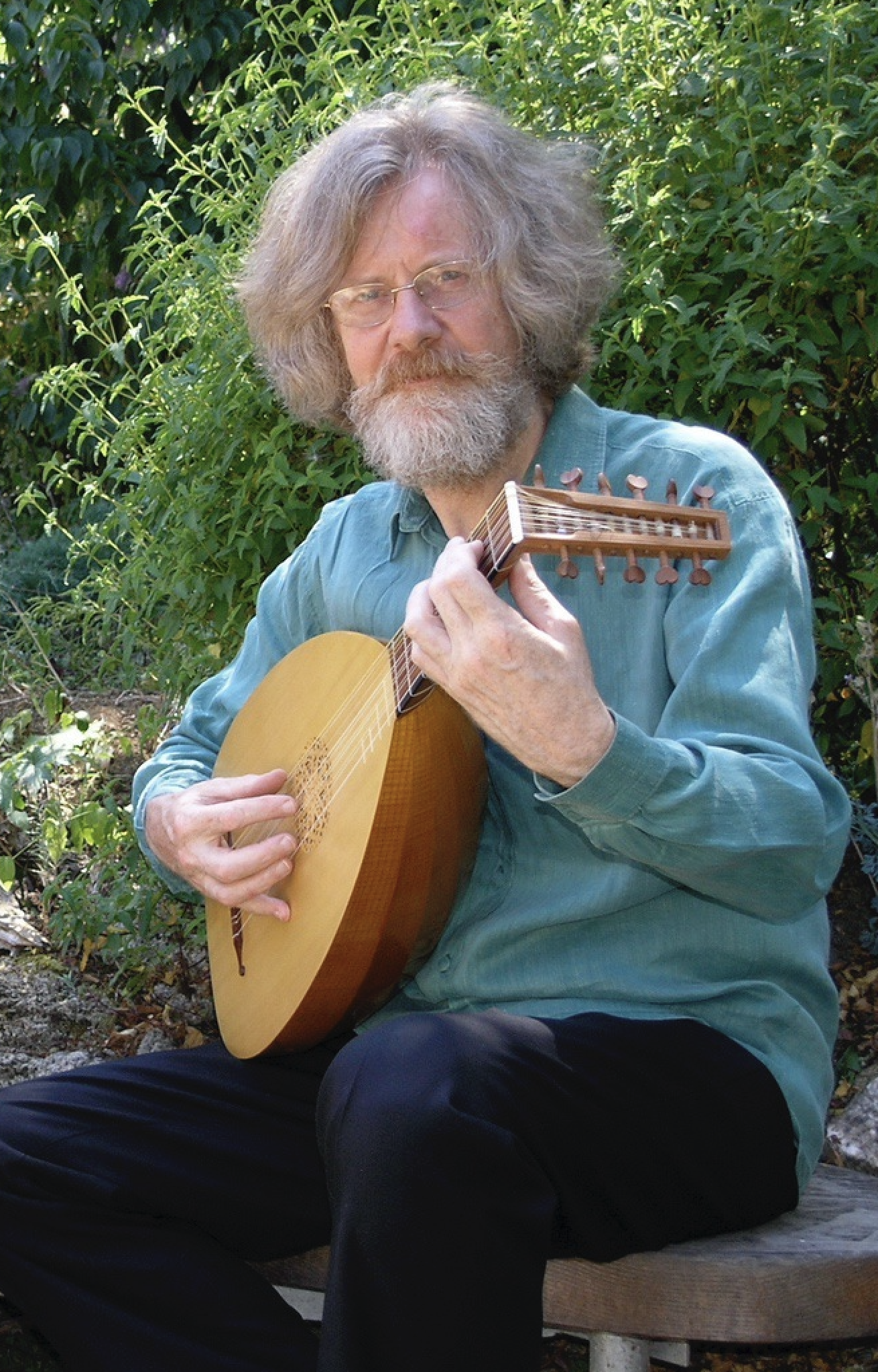
Roy Marks
Roy learned the piano as a child and in his teenage years played lead guitar in a rhythm and blues band. Rather than going on to study music, he chose art instead, his studies culminating at the Royal Academy in London where he was awarded the prestigious David Murray scholarship for landscape painting. From there he went on to teach painting and drawing in adult education. He continued to play the guitar however, studying the classical repertory with Antonio Albeniz as a part-time student at the Guildhall School of Music in London, but in his late thirties, after hearing a young recorder player performing a sonata by Telemann, he turned his attention almost exclusively to earlier repertories which had been increasingly attracting him. He began with the recorder but soon took up the viol; from there, returning to plucked strings, he began learning the lute. More recently, he has also played the curtal in early renaissance loud wind bands. He performs regularly as a duo with his wife, Alison Crum, as well as with the Rose Consort of Viols, and teaches on workshops in the UK, the USA and Europe. He also edits, arranges and composes music for friends to play.
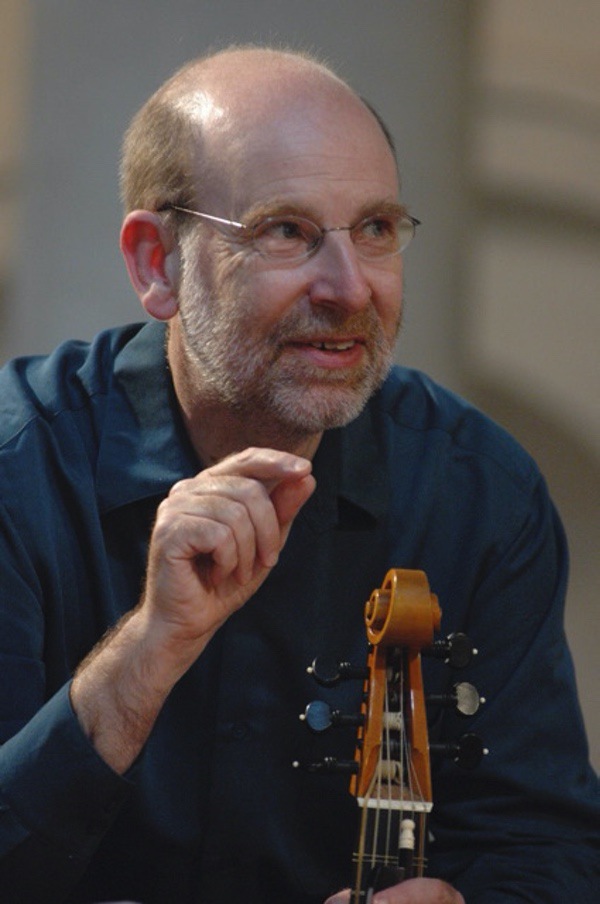
John Bryan
Since graduating from the University of York in the 1970s, John continues to enjoy a varied career combining performance (both as a viol player and as an ensemble director) with research and teaching. He has performed worldwide with ensembles including the Landini Consort, the Consort of Musicke, Musica Antiqua of London and I Fagiolini as well as the Rose Consort, and has made numerous recordings for Decca, Naxos, Signum, cpo, Deux-Elles and Delphian. An artistic adviser to York Early Music Festival, and a contributor to BBC Radio 3’s early music programmes, he has also published articles in Early Music and The Journal of Musicology, as well as a jointly authored book Early English Viols: Instruments, Makers and Music published by Routledge. He is Chair of the Viola da Gamba Society, and also acts as a specialist lecturer for music festivals organised by Martin Randall Travel. He is Emeritus Professor of Music at the University of Huddersfield, which awarded him a higher doctorate in 2015 for his practice-based research into performing the renaissance repertory for viol consort and voices. He has also conducted York Opera in performances of works by Mozart and Britten, and is a guest conductor with the Academy of St Olave’s in York, with whom he has performed orchestral music from Boyce to Richard Strauss.
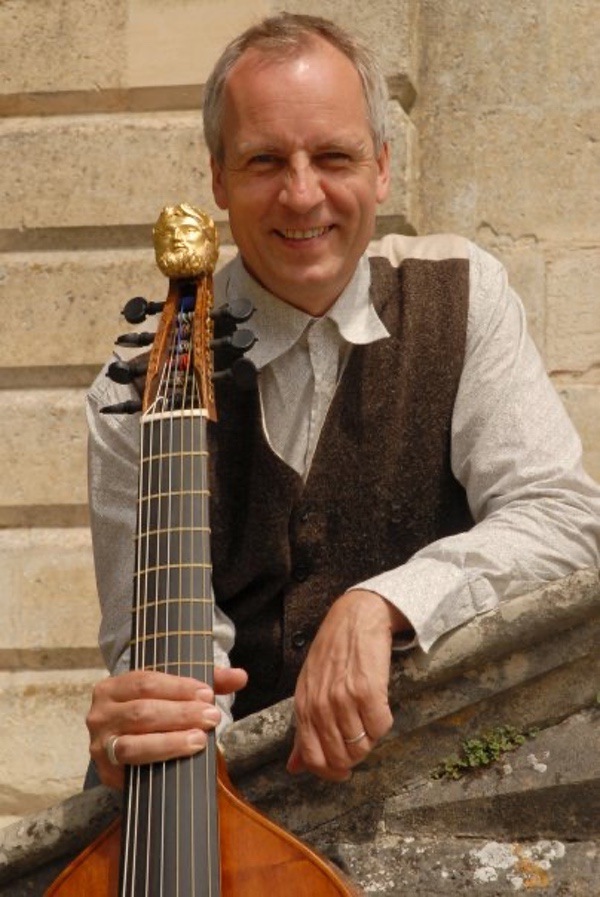
Peter Wendland
Peter is an accomplished and versatile performer on both viol and recorder and is a specialist in early music. As a soloist he plays a wide viol repertory from Ortiz to Abel, while contemporary projects have included a recording with the American cult composer Moondog. He has played the three celebrated sonatas for viola da gamba and harpsichord obligato by J.S. Bach in the Bachhaus in Eisenach with Harald Hoeren, and recorded Bach’s Art of the Fugue with the Kölner Violen-Consort. As a consort player, in addition to his membership of the Rose Consort of Viols, he plays with the Kölner Violen-Consort in Germany, with whom he has recorded on radio and CD, and given premieres of contemporary music for viols. He has also enjoyed creative collaborations with lutenist Konrad Junghänel and oboist Helmut Hucke. He has been a visiting artist at Trinity College of Music in London and taught at summer schools and workshops throughout Europe, including the Dartington International Summer School, and has coached ensembles ranging from viol consorts, choirs and recorder ensembles to renaissance wind bands. He is currently teacher for the viol at Birmingham Conservatoire and of the recorder at Morley college in London.
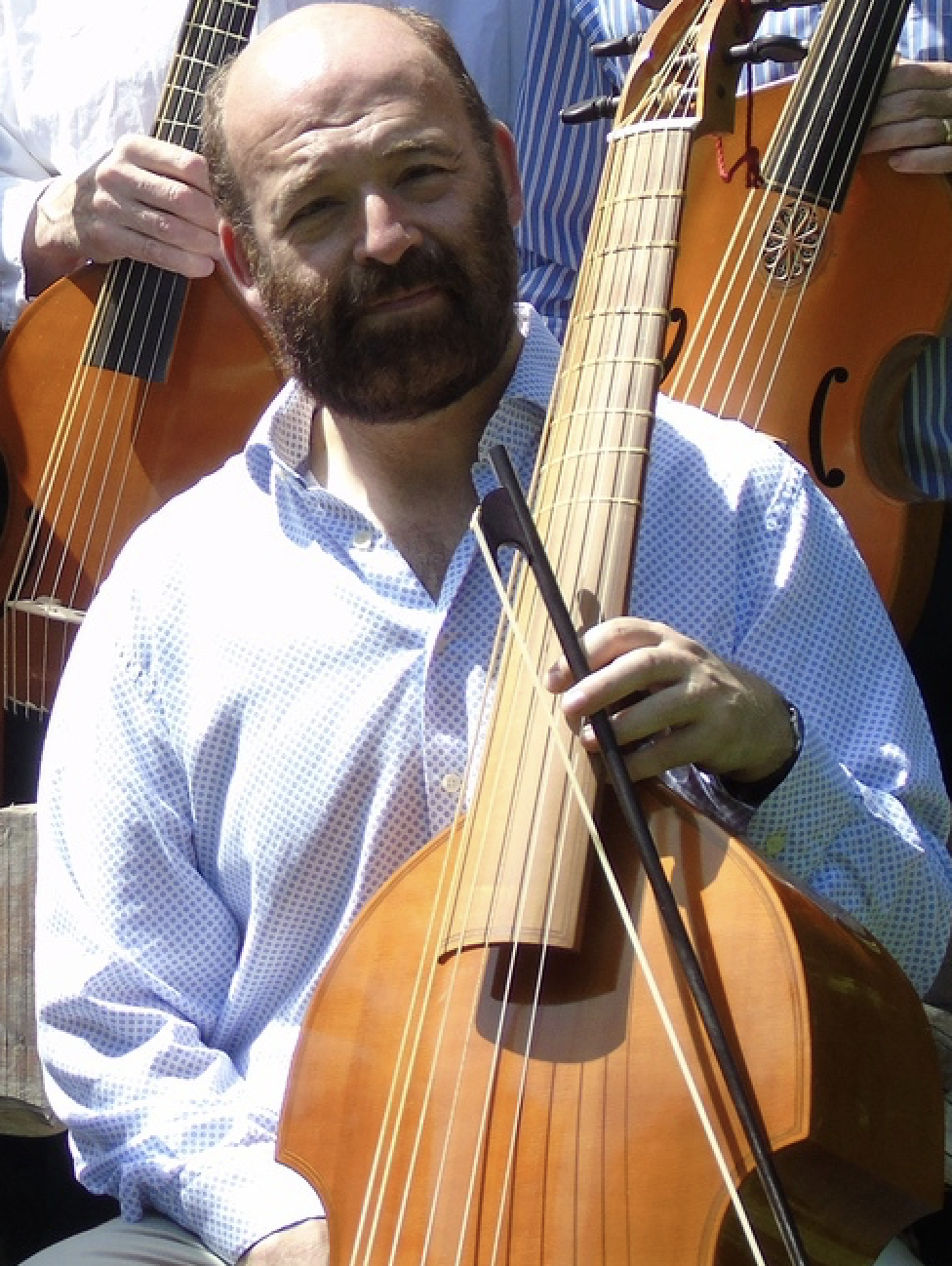
Andrew Kerr
Andrew started musical life playing brass instruments, gradually discovering a love of earlier music and instruments. Initially studying the recorder at university, he soon switched to the viol, learning with Alison Crum. He finds that bigger is better with viols, and now specialises in the larger sizes, being much in demand as a player of the violone, or as a continuo player on the bass viol. In that capacity he has performed and recorded with baroque orchestras across the UK, playing with such ensembles as the Hanover Band, Orpheus Britannicus, Canzona, Musica Antiqua of London, the Parley of Instruments, I Fagiolini, Ex Cathedra and L’Avventura London. He is an avid arranger, editor and reconstructor of music involving viols, completing music from which one or more parts has been lost over time, or creating music for viol consort from other sources: the keyboard music of Byrd, Gibbons and Tomkins has been a rich seam to mine. Some of these pieces have even made their way into Rose Consort programmes. When he is not performing or editing, he may be found solving abstruse data problems in his other life as a database administrator, or tinkering with clocks.
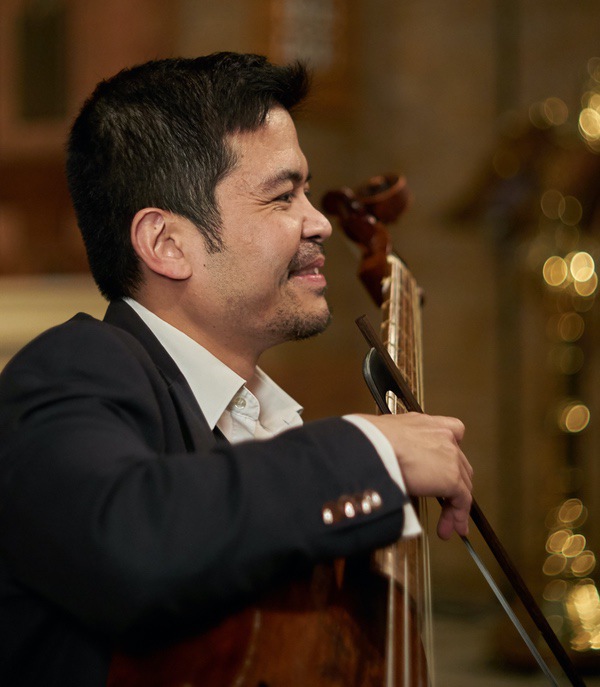
Ibrahim Aziz
Ibrahim specialises in the performance of renaissance, baroque and contemporary music on the viola da gamba. His playing has been described as having ‘a fine tone, coupled with feeling and power’ (American Record Guide) and ‘full of breath and mystery’ (Gramophone). He studied the viol with Alison Crum at Trinity Laban (formerly Trinity College of Music, London) where he won the college’s prestigious Isabelle Bond Gold Medal in 2005. He is a founder member of Chelys Consort of Viols and regularly plays with various other period-instrument ensembles in the UK and South East Asia. He has recorded two solo albums of viol music on First Hand Records – one of unaccompanied old and new music for viola da gamba, and the other Handel Sonatas for viola da gamba and harpsichord with harpsichordist Masumi Yamamoto – both of which have garnered favourable reviews from around the world. He has also collaborated with many distinguished artists, such as singers Emma Kirkby and Clare Wilkinson, harpsichordist Mahan Esfahani, recorder players Emma Murphy and Pamela Thorby, jazz musicians Liam Noble and David Wickins, and the contemporary music company Sound Affairs with composer Charlie Barber. He leads the baroque ensemble and viol consort courses at Morley College, London.
Rose ConsortEnsemble Members
The Rose Consort’s international team of players (Germany, Malaysia and UK) have between them more than 200 years’ experience of playing viols. As well as performing and recording together, they have skills in editing and publishing music (including recreating ‘lost’ consort music from keyboard and other fragmentary sources), ensemble direction and musicological research. They are also all highly experienced teachers and coaches of consort playing.
Alison Crum
Ibrahim Aziz
John Bryan
Andrew Kerr
Roy Marks
Peter Wendland
Listen to the Rose Concert while you read their bios
Vincenzo Ruffo: La Gamba
Ludwig Senfl: Ich stund an einem Morgen
Peter Philips: Paget Galliard
About the Rose Consort of Viols
The Rose Consort of Viols takes its name from the celebrated family of viol makers, whose work spanned the growth and flowering of the English consort repertoire.

NAVIGATION
Copyright 1990-2024 © Rose Consort. All Rights Reserved. | Home



